
TACC First Citizens Fund (FCF) Loan
At a glance
- Maximum amount : 75,000 $
- Up to 85% of project cost
- Open Date : November 14, 2019
- All industries
- British Columbia
- For-profit business
- Sole proprietorship
- All revenue ranges
- All organization sizes
- Indigenous Peoples
Overview
Get a loan of up to $75,000, with 40% forgiveness of the principal amount, to start or grow a business.
Activities funded
The TACC First Citizens Fund (FCF) Loan supports the entrepreneurial ventures of Aboriginal entrepreneurs, helping them establish and grow their businesses. Given the grant's focus, projects eligible for this loan revolve around business creation and expansion.
- New business ventures initiated by Aboriginal entrepreneurs.
- Expansion projects for existing Aboriginal-owned businesses.
- Investments in business infrastructure and operations improvements.
- Activities that enhance the sustainability and economic viability of Aboriginal businesses.
Eligibility
Eligibility for applying for financing with TACC is determined based on the following criteria related to the applicant's business ownership and financial contributions.
- The business must be at least 51% Aboriginal owned/operated.
- The applicant must meet the 15% minimum cash equity contribution requirement.
Who is eligible?
Aboriginal Entrepreneurs including Status, Métis, Inuit, and Non-Status Indians residing in the Coast Salish Territory.Eligible geographic areas
This grant is specifically available to Aboriginal Entrepreneurs residing in a particular territory. The eligible geographical area is defined by the cultural and historical boundaries of the Coast Salish Territory.
- Coast Salish Territory
Selection criteria
There are evaluation and selection criteria for this grant.
- Businesses must be at least 51% Aboriginal owned/ operated.
- 15% minimum cash equity contribution required.
How to apply
Initial Inquiry
- Contact TACC to express your interest in applying for a loan.
- Ensure you meet the minimum eligibility requirements to apply.
Prepare Documentation
- Gather documentation proving Aboriginal ownership (minimum 51%).
- Prepare financial statements and business plans.
- Compile records to demonstrate the 15% cash equity contribution.
Complete Application
- Fill out the loan application form provided by TACC.
- Review the terms and conditions of the loan program carefully.
Submit Application
- Submit the completed application form along with all supporting documentation to TACC.
- Ensure all required signatures are affixed before submission.
Follow-up
- Wait for confirmation from TACC regarding the receipt of your application.
- Respond promptly if additional information is requested.
Decision Waiting Period
- TACC will review your application and conduct due diligence.
- Be prepared to provide additional information or clarification if required during this period.
Receive Decision
- Upon approval, receive details of your loan agreement including repayment terms and forgiveness options if applicable.
- Review the loan offer carefully before acceptance.
Additional information
Here are additional relevant details for these financing options:
- The FCF Loan offers a 40% forgiveness on the principal, which can significantly reduce the overall debt.
- The interest rates differ for each loan type, with FCF at a fixed 12% and Conventional Loan starting at 8% based on credit.
- Both loan options require a 15% minimum cash equity contribution from the applicant.
- For the FCF Loan, the forgivable portion is applied at four distinct intervals throughout the loan term based on specific conditions.
- Borrowers are subject to a 1.5% fee which covers business client care services provided by TACC.
- It's important to understand and agree to the terms and conditions outlined in the FCF Agreement to receive forgiveness benefits.
Frequently Asked Questions about the TACC First Citizens Fund (FCF) Loan Program
What is the TACC First Citizens Fund (FCF) Loan?
How much funding can be received?
Who is eligible for the TACC First Citizens Fund (FCF) Loan program?
What expenses are eligible under TACC First Citizens Fund (FCF) Loan?
Who can I contact for more information about the TACC First Citizens Fund (FCF) Loan?
Where is the TACC First Citizens Fund (FCF) Loan available?
Is the TACC First Citizens Fund (FCF) Loan a grant, loan, or tax credit?
More programs like this

Indian Business Corporation Services
Indian Business Corporation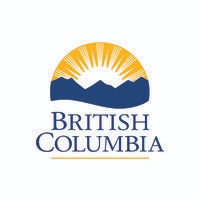
BC Manufacturing Jobs Fund (BCMJF) — Capital Investment
Government of British Columbia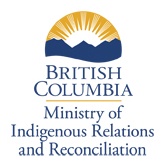
Indigenous Business Advisory Centres
Government of British Columbia
TACC Conventional Loan
Tale'awtxw Aboriginal Capital Corporation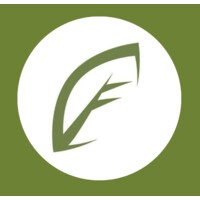
Community Futures British Columbia
Community Futures British Columbia
First Citizens Fund — Business Loan Program
Government of British Columbia
TACC New Relationship Trust (NRT) Community Equity Match Grant
Tale'awtxw Aboriginal Capital Corporation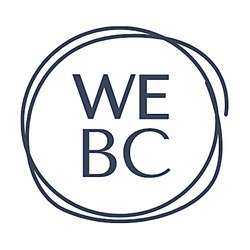
WeBC — Business Loans for Youth
WeBC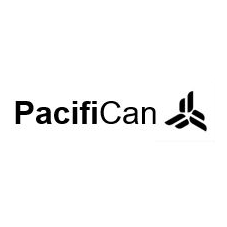
PacifiCan — Lytton Business Restart Program
Pacific Economic Development Canada (PacifiCan)